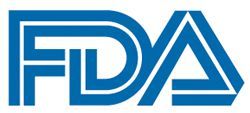Article
FDA Grants Orphan Drug Designation to QN-302 for Pancreatic Cancer
Author(s):
The FDA has granted an orphan drug designation to QN-302 for the treatment of patients with pancreatic cancer.
FDA

The FDA has granted an orphan drug designation to QN-302 (formerly SOP1812) for the treatment of patients with pancreatic cancer, according to an announcement from Qualigen Therapeutics.1,2
“Receiving orphan drug designation for our lead cancer therapeutic, QN-302, for treating pancreatic cancer, is an important accomplishment as we prepare to submit our investigational new drug [IND] application in the first half of 2023 for our phase 1 clinical trial. It is a testament of Qualigen’s commitment to developing treatments for devastating, rare cancers with unmet medical need,” Michael Poirier, chairman and chief executive officer of Qualigen, said in a press release.
QN-302 is a potentially first-in-class, small molecule selective transcription inhibitor with strong binding affinity to G-quadruplex (G4), which is prevalent in cancer cells compared with normal cells. Through this binding, the agent may help stabilize G4 against unwinding, leading to decreased cancer cell proliferation.
Preclinical in vitro and in vivo studies of QN-302 have shown that G4 stabilization may result in inhibition of target gene expression and inhibit cell growth in a variety of cancers, including prostate, sarcomas, gastrointestinal stromal tumors, and pancreatic ductal adenocarcinoma, which represents 98% of pancreatic cancers.
Findings from the studies were presented at the AACR’s 8th Special Conference on Pancreatic Cancer this past year.3
In one study, QN-302 was shown to be safe, showing no effect on key receptors for cardiac and neurological function at therapeutic doses in a MIA-PaCa2 pancreatic adenocarcinoma mouse model. Additionally, QN-302 did not affect heart or kidney tissue compared with placebo, nor did it have a significant effect on heart rate.
In a second poster presentation evaluating the mechanism of action of the agent, investigators demonstrated that QN-302 targets the S100P gene and downregulates expression against pancreatic cancer in an in vivo MIA-PACA2 xenograft model.
On June 7, 2022, Qualigen reported that they had begun IND-enabling studies for QN-302.4 The Company also announced that it had established an in vivo maximum tolerated dose of QN-302.
Per the release, the IND-enabling studies, combined with the data package in-licensed from University College London (UCL), support the timeline for the submission of the company’s intended IND application to the FDA during the first half of 2023.
References
- Qualigen Therapeutics receives orphan drug designation from the U.S. Food and Drug Administration for QN-302, a G-quadruplex (G4) transcription inhibitor for the intended indication of pancreatic cancer. News release. Qualigen Therapeutics. January 10, 2023. Accessed January 12, 2023. https://bit.ly/3IIQCxB
- Therapeutics Pipeline QN-302. Qualigen Therapeutics. Accessed January 12, 2023. https://www.qualigeninc.com/pipeline/qn-302/
- Qualigen Therapeutics presents data on QN-302 at AACR’s Pancreatic Cancer Meeting. News release. Qualigen Therapeutics. September 14, 2022. Accessed January 12, 2023. https://bit.ly/3W9UfzM
- Qualigen Therapeutics announces IND-enabling studies to advance lead program QN-302 toward clinical trials. News release. Qualigen Therapeutics. June 7, 2022. Accessed January 12, 2023. https://bit.ly/3IIsXNO









